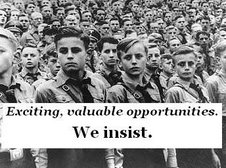From this year's Economist technology and Innovation awards*
Computing and Telecommunications: Matti Makkonen for the development of Short Message Service (SMS), or text messaging. Mr Makkonen is a Finnish engineer who is credited with inventing SMS, which allows short messages to be sent between mobile phones. He proposed the idea in the 1980s while working at Finland’s telecoms authority. Billions of text messages are now sent every day.I spent most of the 90's designing and building GSM networks. Whenever we put business plans together we just paid lip service to SMS; it was seen as something that could be used for SIM updates and nothing else. Nobody believed that any sane person would think about going through the rigmarole of tapping out a message to send to someone else.
Unless you've been on planet Zog for the past 15 years or so you'll be well aware of how wrong we were and the massive growth of SMS but maybe not aware of how much of a golden egg it became for the mobile industry:
The same Informa report shows that SMS remains a very popular technology, however. Worldwide SMS traffic was up year-on-year by around 50 per cent to more than 620 billion messages sent during the quarter. SMS revenues were up 23 per cent over the same period.and
A report from UK-based research firm Portio Research suggests that SMS will remain the most widely used messaging format for some years to come, with revenues estimated at $50bn by 2010 driven by almost 2.38 trillion messages.To select just 2 random articles.
When we talked to the Marketing teams to get dimensioning numbers they were either oblivious to SMS or just didn't see it as a major revenue generator, so we would just add in a single SMS centre for the network and move on, it wasn't worth spending time on the detail. This didn't matter as even if they had given forecasts of high usage we would have matched spend to revenues so there wouldn't have been much of an impact on capital expenditure (Capex) until it was needed and had revenues to pay for it.
When SMS did start to take off there was a bit of a scramble but as it is a Store and Foreward technique and instant delivery was never promised it didn't realy matter. A few engineers made extra money during that period and some smaller companies grew like topsy to meet demand, but no real harm done.
It is also worth noting that in 1994 the engineering team I worked in was given a briefing by the Orange marketing team. In this briefing they predicted that UK mobile penetration in the UK would top out at around 30% by the year 2000 and Orange would have a 20% share. As it happens penetration was approaching 100% by the year 2000.
So, why am I telling you all this? Well, apart from general interest there is a lesson in central planning to be learned. When I say "we" did all this planning, I mean some seriously intelligent people. I worked with a number of Management Consultancy companies at the time and they were the ones making the forecasts on mobile demand. Most of the people had MBA's from some of the top management schools, including INSEAD. Many of them also had years of telecoms experience as well. They were also working for some very hard nosed, perceptive and very rich clients.
These people were focused on one thing, making money. If they it wrong then companies would lose billions of £££'s, and they still managed to get something as fundamental as mobile forecasts wrong. Fortunately for the companies involved they undercooked how much money was to be made, but when they get it wrong its very expensive; ask Hutchison about its 3 operation here in the UK:
Canning Fok denies that the launch of a mobile broadband service is the last chance for Hutchison Whampoa's loss-making 3 mobile business. ... Today he is desperate to convince the outside world that the $25bn gamble 3 has placed on Europe's third-generation telephony market will - eventually - pay off.They are still losing money, but not quite as fast.
If these seriously bright people with lots of experience can't always get it right, what hope is there for us of our current crop of politicians and civil servants, most of whom haven't done anything outside politics, planning and managing a whole economy or even, for that matter, regulating the seriously bright people effectively? And they have any political consideratios affecting their decision making as well.
Me? I would prefere to leave most of it to the seriously bright people and hard nosed business men and I include health deleivery in that statement as well.
*No link as its behind a subscription wall











No comments:
Post a Comment